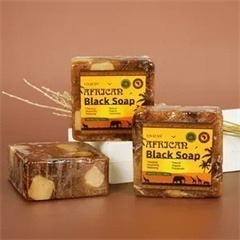1. Cleansing: Soap’s primary role is to cleanse surfaces, including the skin, by breaking down and removing dirt, oil, sweat, dead skin cells, and other impurities. It does this by forming micelles that encapsulate and lift away these particles, allowing them to be washed away with water.
2. Hygiene: Soap helps to maintain good hygiene by reducing the number of microorganisms, including bacteria and viruses, on the skin. Regular handwashing with soap is one of the most effective ways to prevent the spread of infections and diseases.
3. Removing Oil and Grease: Soap’s ability to dissolve oils and grease is important for cleaning tasks such as removing oil-based stains from clothes, dishes, and surfaces. This property makes soap effective for breaking down substances that water alone can’t remove.
4. Emulsification: Soap acts as an emulsifier, allowing oil and water to mix. This property is especially useful in personal care products and household cleaning products, as it helps to suspend and remove oil-based dirt in water.
5. Skin Care: In addition to cleansing, some soaps are formulated with ingredients that provide skincare benefits. For example, moisturizing soaps contain hydrating ingredients to help prevent skin dryness after cleansing.
6. Exfoliation: Some soaps, particularly those with added exfoliating particles, help to gently remove dead skin cells from the surface of the skin. This can leave the skin looking smoother and more radiant.
7. Personal Comfort: Using soap is not only about hygiene but also personal comfort. Feeling clean and fresh contributes to a sense of well-being and confidence.
8. Specialized Uses: Soap can also have specialized applications, such as in medical settings, where antimicrobial or antiseptic soaps are used to help reduce the risk of infections during surgeries and medical procedures.
9. Cultural and Social Significance: Soap has cultural and social significance in various societies. Regular use of soap for personal cleanliness is considered a norm in many cultures and contributes to social interactions and norms.
10. Sustainability: Some soap brands are focusing on sustainability by using eco-friendly ingredients, responsible sourcing, and reducing packaging waste, contributing to more environmentally conscious consumer choices.
Overall, soap plays a crucial role in maintaining health, cleanliness, and well-being across various aspects of daily life. Its properties make it an effective tool for removing impurities, promoting good hygiene, and contributing to an overall healthier lifestyle.





































